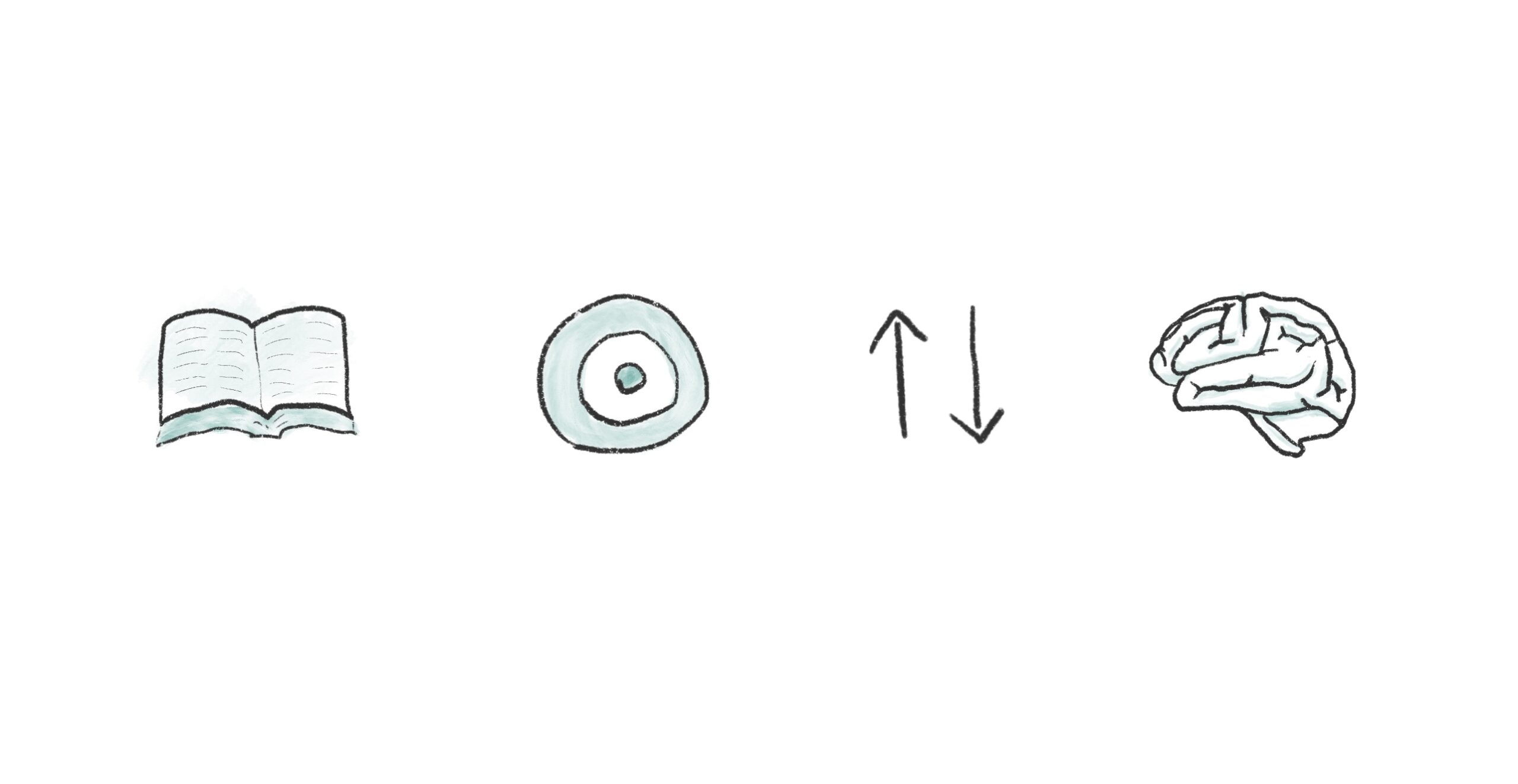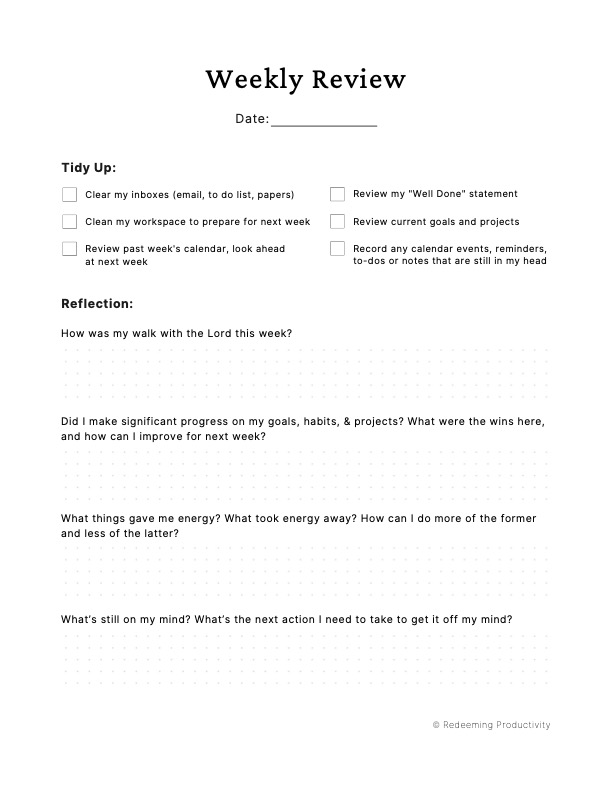In this article, I’m going to teach you a dead simple strategy for creating a weekly review that will help you get more done.
A weekly review is simply a scheduled time in which you reflect on the previous week and plan for the next. It is a key rhythm for any productive life.
Most people lack clarity and purpose in their work because they don’t have a specific plan for a weekly review. They go, go, go Monday–Friday, but never pause to consider if they are running in the right direction. A weekly review forces you to stop, reflect, and pray about your work.
A consistent weekly review not only makes you more productive, it also helps you live more intentionally for Christ.
We regularly examine things that are important to us. We schedule checkups for our:
- Cars
- Bodies
- Homes
But how often do you check in on how you are spending your most precious resource of all—your time?
The weekly review is a once-a-week check-up on your life, productivity, and walk with the Lord.
It takes some discipline to keep a consistent weekly review, but the rewards you reap are absolutely worth the effort.
Weekly reviews give you:
- Awareness of where your time is going
- A greater sense of being organized and on top of things
- Clarity about where your life is headed
Here’s a simple action plan to start having a weekly review of your own.
Step 1: Plan the Time
The best way to ensure your weekly review happens is to schedule it.
When you do your weekly review is completely up to you. But the end of the week tends to be the best time for most people.

Some people like to do their reviews on Sunday afternoon or evening. That way they can lay out a plan for the week without any distractions. This is a good option also if you plan to do your reviews with a spouse (something Scott Kedersha recommends in this podcast episode).
Personally, I like to do my reviews on Friday afternoons from 3:30–4:30 p.m.
That way I can go into the weekend with a clear head, knowing I’ve wrapped things up for the previous week and have a plan for the coming one.
Whatever time you choose, put it on your calendar. This is an appointment with yourself. Don’t schedule anything else at this time.
Step 2: Create a Checklist
When you sit down to do your review, you need some kind of script to make sure you hit everything you want to review.
In David Allen’s book, Getting Things Done, he says all weekly reviews should have three sections: Get clear, get current, and get creative.
Here’s the checklist I’ve created for my own weekly review using those categories:
Get Clear: Process all your loose ends.
- Clear all inboxes (email, to-do list, paper)
- Tidy up my workspace
Get Current: Make sure all your appointments are up to date.
- Review past week’s calendar
- Look ahead at next week’s calendar
Get Creative: Come up with new ideas to improve how you live and work.
- Review my “Well Done” statement
- Review/update current goals & projects
- Record any new ideas that come to mind
Here’s a simple weekly review worksheet PDF with this check list that you can download.
Throughout this process, have your calendar and notebook handy.
So you can:
- Capture any to-do’s that come to mind
- Update your calendar with things you may have not recorded yet
- Write down any ideas you’d like to explore further in the future
Every time I go through this process, I wonder how many things must have been falling through the cracks before I started doing these reviews.
If you aren’t doing a weekly review, you likely have many more commitments and projects falling through the cracks than you realize.
Step 3: Reflect & Pray
Now that you’ve wrapped your head around the previous week and you’re thinking about the week to come, spend some time thinking and praying.

I ask and answer these 4 reflection questions in my journal, praying as I write.
- How was my walk with the Lord this week?
- Did I make significant progress on my goals, habits, & projects this week? What were the wins? Where can I improve?
- What things gave me energy? What things took energy away? How can I do more of the former and less of the latter?
- What’s still on my mind? How can I capture it somewhere to get it off my mind?
Finally, I spend some time thanking God for the previous week and asking for His help in the week to come.
Then I go into the weekend with a clear mind and a light heart. It’s a great feeling.
The Short Version
- Step 1: Plan the Time & Place – Make a recurring appointment with yourself
- Step 2: Create a Checklist – Get clear, current, & creative
- Step 3: Reflect & Pray – Consider the previous week, commit the coming week to the Lord
Follow this plan for a few weeks and you will find yourself thinking more clearly and feeling less rushed.
Living a God-glorifying life doesn’t happen by accident. It requires intentionality. A weekly review is simply a tool that forces you to pause and think so you can be a better steward of the time God has lent to you.
I actually look forward to these reviews because it’s so satisfying tying up loose ends. I just love going into Saturday knowing everything has been dealt with and there’s a plan for the coming week.
Here’s that printable worksheet again. It has the checklist and reflection questions I shared above.
And if you want to go deeper on this topic, I discuss the importance of weekly reviews at greater length in this podcast episode.


